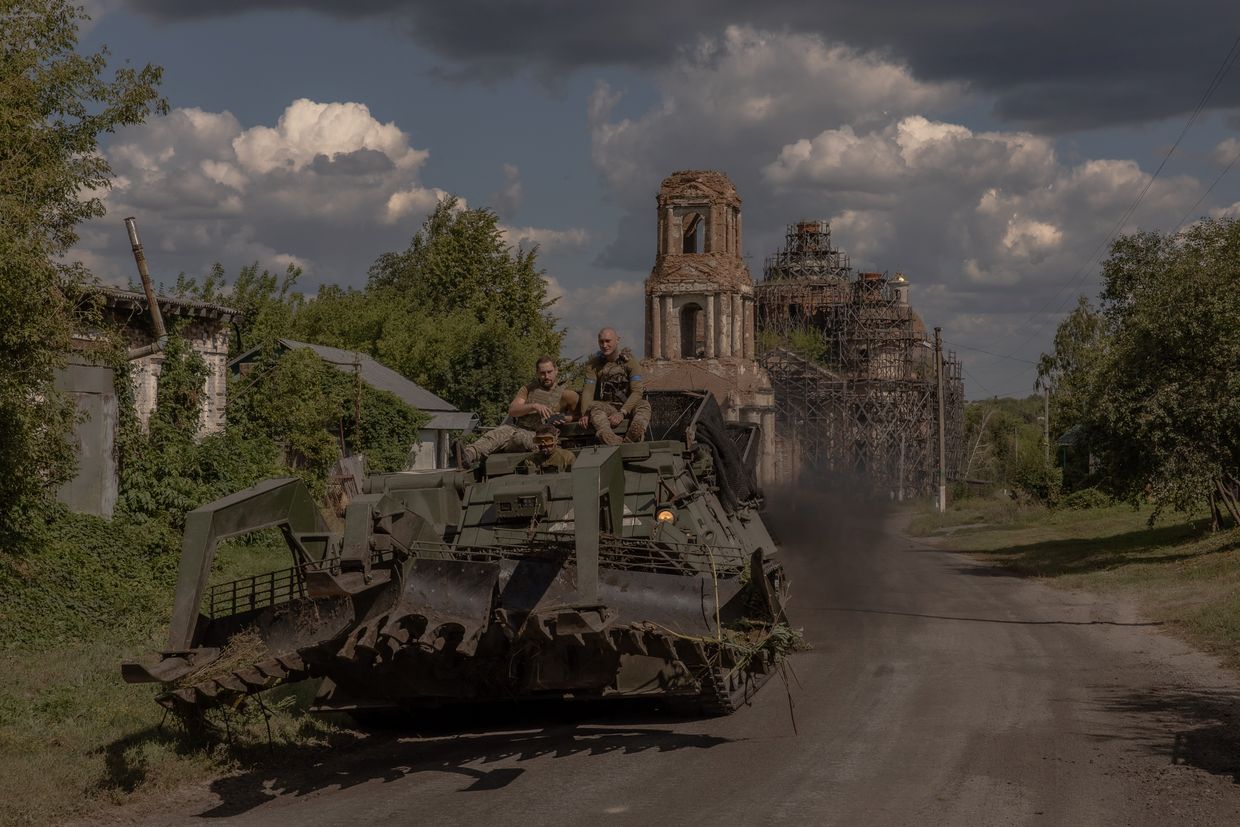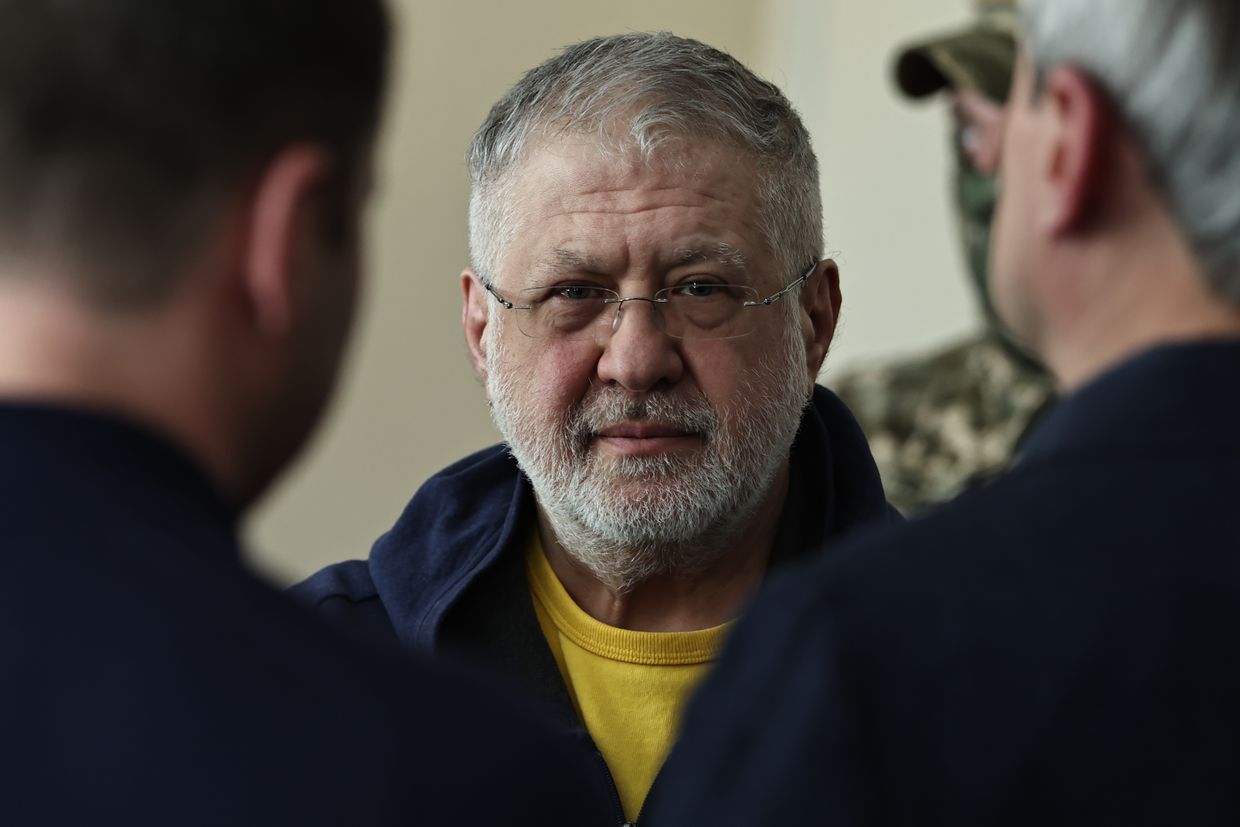Opinion: Mongolia should arrest Putin or face consequences

Russian President Vladimir Putin, accompanied by Mongolian Foreign Affairs Minister Battsetseg Batmunkh walks past honor guards upon arrival at the airport in Ulaanbaatar, Mongolia, on Sept. 2, 2024. (Natalia Gubernatorova/POOL/AFP via Getty Images)

Daniil Ukhorskiy
Ukraine Program Manager at Legal Action Worldwide
Indicted war criminal Russian President Vladimir Putin arrived in Mongolia today. As a member of the International Criminal Court (ICC), which issued an arrest warrant for Putin back in March 2023 for the deportation and transfer of children from Ukraine, Mongolia is legally obligated to arrest him.
“There are no worries, we have a great dialogue with our friends from Mongolia,” Kremlin spokesman Dmitry Peskov said ahead of Putin’s scheduled visit, noting that “all aspects of the visit have been thoroughly prepared.”
In its turn, the ICC has urged Mongolia to arrest Putin, stating that in case of non-cooperation, the ICC may “take any measure it deems appropriate.”
International criminal law is deeply flawed but not entirely toothless. In 2006, Serbian President Slobodan Milosevic died in a Hague prison cell while on trial for war crimes. Former Sudanese President Omar al-Bashir is currently facing trial at the ICC. Since the Nuremberg trials, countless war criminals have been convicted worldwide. Today, dozens of organizations work to combat impunity for crimes committed in Ukraine.
Despite its flaws, international criminal law is at a critical juncture. The system’s integrity would be undermined if Putin is allowed to travel to an ICC member state without consequences. If Mongolia fails to arrest Putin, ICC members should strongly reprimand the country and reinforce the principle that there can be no safe haven for war criminals.
The Rome Statute, adopted in 1998 by more than 100 countries, established the ICC as a pillar of international justice. The court’s mandate is to investigate and prosecute “core” international crimes: aggression, genocide, crimes against humanity, and war crimes. The ICC is currently active in over 12 countries, including Ukraine since March 2022.
However, the ICC’s reach is not universal. Just over half the world’s countries are ICC members, and Ukraine recently announced plans to ratify the Rome Statute. Of the five permanent members of the UN Security Council, only France and the U.K. are ICC members. Russia and China openly reject the court, while U.S. hostility has long undermined its efforts to support international law.

Mongolia joined the ICC in 2002. When countries sign the Rome Statute, they commit to enforcing international law on their territory, including honoring ICC arrest warrants.
This situation is not unique. In 2023, South Africa faced a political crisis over Putin’s potential visit to a BRICS conference, with opposition leaders insisting on adherence to Rome Statute obligations. Ultimately, after political pressure and the risk of arrest, Putin canceled his trip. Mongolia had a similar option. Activists and legal experts worldwide warned that Putin’s arrival would leave the country at a crossroads.
There is no world police force to enforce international law, but that doesn’t mean it's powerless.
Countries can respond to violations through countermeasures, a legal mechanism that allows them to "punish" offenders by breaking certain rules themselves. Sanctions, like those imposed on Russia since 2014, are a prime example of countermeasures. The goal is to pressure countries into ending violations of international law, at which point the sanctions should be lifted.
Mongolia is geographically and politically wedged between Russia and its steadfast ally. It is unlikely to provoke the Kremlin by arresting Putin. However, if it fails to act, all 124 ICC member states are within their rights to impose sanctions on Mongolia.
The international community must make clear that harboring indicted war criminals is unacceptable. ICC members should exert their financial and diplomatic power, ideally through the Assembly of States Parties, the court’s governing body. Options range from diplomatic warnings to economic sanctions, allowing countries to demonstrate their commitment to international justice.
Though Putin's arrest may seem unlikely, holding Mongolia accountable would send a message that further isolates Russia. As Moscow seeks to delegitimize the ICC, each country’s stance—whether explicit or tacit—affects the court's strength.
It is in the collective interest of ICC members to resist Russian efforts to weaken the court and punish any state complicit in such actions. In the end, the goal must be to make the world intolerably small for indicted war criminals.
Editor’s Note: The opinions expressed in the op-ed section are those of the authors and do not purport to reflect the views of the Kyiv Independent.












